
Mr. Le Van Binh, Deputy Director in charge of Tam Chung Commune Public Service Center shared with reporters.
Moving from awareness to action
Realizing the importance of this policy, in recent years, the education sector of Thanh Hoa province has proactively issued many specific plans and programs to promote digital transformation in educational institutions, especially in mountainous, remote and isolated areas. Despite difficult socio -economic conditions, many highland schools still strive to "keep up" with new trends, considering this a key task to innovate teaching methods and improve the quality of comprehensive education.
Bat Mot Secondary School: A bright spot from the border area
In the mountainous district of Thuong Xuan, Bat Mot Secondary School (Bat Mot commune, bordering Laos) is one of the leading units in applying digital technology to management and teaching. Currently, the VNEDU system is deployed in most of the school's activities, from lesson plans, teaching plans, homeroom records, student management to entering grades and communicating with parents, all are done online.
Principal Le Hong Sam shared that, in the past, each semester, teachers had to print and store a large amount of records, while parents only knew their children's learning results at the end of the semester. This not only took time and effort, but also posed a risk of errors and made it difficult to look up data when necessary. "Now, when the whole school deploys VNEDU, all data is updated instantly and transparently, with just a few clicks, students' entire learning process can be monitored," said Mr. Sam. "Not only that, storing electronic records also helps teachers save time and devote more effort to professional work."
Not only in management, technology is also applied deeply into each lesson. 100% of the school's classrooms are connected to the Internet, equipped with televisions and computers for teaching. Teachers proactively combine traditional methods with electronic lesson plans, making lessons more intuitive, vivid and attractive. The school also built a separate computer room with a full computer system and specialized teachers, helping students get acquainted early with the skills of creating documents, using basic software, searching for information, and initially learning how to think and work in a digital environment.
In particular, recently, many teachers at Bat Mot Secondary School have begun to apply artificial intelligence (AI) in lesson preparation. AI software is used to search for illustrative materials, design images, suggest teaching content, support grading and evaluate student abilities. Thanks to that, lessons become more vivid, updated and closer to the lives of students in the highlands.
In parallel, the school also actively sends staff and teachers to participate in training courses on digital skills, including the use of AI in management, online teaching and assessment. The training sessions not only help teachers grasp new tools but, more importantly, change their mindset and working habits, from being hesitant and afraid of technology to proactively and effectively exploiting digital software and platforms.
"Teachers in mountainous areas were initially confused, but when they saw that technology helps save time, reduce administrative work and make lessons more attractive, everyone wanted to learn more. We determined that digital transformation is not a movement, but a driving force to improve the quality of teaching and learning, especially in the current context of integration and fundamental innovation in education ," Mr. Sam emphasized.

Teachers at Bat Mot Secondary School flexibly combine traditional teaching methods and apply electronic lesson plans in their lessons.
Difficulties still exist in many remote schools.
In contrast to the advantages in Bat Mot, in many other highland areas of Thanh Hoa, digital transformation in education still faces many barriers. At Thiet Ong Primary School (Thiet Ong commune, Ba Thuoc district), about 80% of students are ethnic minority children, with limited Vietnamese language skills and access to technology. Although facilities have been invested, they are still not synchronized; in particular, the school does not have a full-time IT teacher, making it difficult to maintain regular IT teaching.
Vice Principal Du Thi Viet Ha shared: "The school has a relatively full computer room, but due to a lack of teachers, operations are difficult. The whole school currently only has one smart TV, which mainly serves one-way projection, and cannot organize interactive lessons or online connections."
However, not resigned to the limited conditions, Thiet Ong Primary School still proactively sought ways to adapt flexibly. The school organized internal training sessions on information technology, encouraging teachers to gradually become familiar with AI tools, including ChatGPT - a tool used by many teachers to prepare lesson plans, find teaching materials, design questions and learning activities. The Board of Directors guided teachers to apply technology appropriate to their personal abilities and classroom conditions, without imposing or following trends. Thanks to that, many teachers have confidently used AI to design lessons according to each activity such as warm-up, exploration, practice, and consolidation, helping students become more interested, proactive, and creative in class.
In addition, the school also integrates digital citizenship education into flag-salute activities, through discussions on safe use of social networks, prevention of online fraud, school violence, and civilized behavior skills in cyberspace. These contents not only equip knowledge but also help ethnic minority students understand responsibility and proper behavior in the digital environment.
Digital transformation – a long but inevitable journey
According to a representative of the Department of Education and Training of Ba Thuoc district, to successfully transform digitally in mountainous areas, a long-term strategy is needed, focusing on investing in network infrastructure, equipment, and training digital skills for teachers and students, while developing flexible teaching content suitable to local characteristics.
Resolution 71-NQ/TW is not only a strategic orientation for the entire industry, but also a driving force for each school to innovate itself. Despite the lack of conditions, with a spirit of initiative, creativity and responsibility, teachers in the highlands of Thanh Hoa are gradually "activating" the classroom with technology, narrowing the digital gap and expanding equal learning opportunities for all students.
Digital transformation in highland education may not be fast, but every small step is meaningful. From updating scores online, organizing the first online class, to lectures supported by artificial intelligence, all are creating a new picture of highland education in the digital age, where knowledge is no longer limited by geographical space, and learning opportunities are open to everyone, everywhere./.
Source: https://mst.gov.vn/truong-hoc-vung-cao-thanh-hoa-no-luc-chuyen-doi-so-trong-giao-duc-197251111090229249.htm



![[Photo] Prime Minister Pham Minh Chinh attends a conference to review one year of deploying forces to participate in protecting security and order at the grassroots level.](https://vphoto.vietnam.vn/thumb/1200x675/vietnam/resource/IMAGE/2025/11/12/1762957553775_dsc-2379-jpg.webp)


![[Photo] Highways passing through Dong Nai](https://vphoto.vietnam.vn/thumb/1200x675/vietnam/resource/IMAGE/2025/11/12/1762940149627_ndo_br_1-resize-5756-jpg.webp)




































































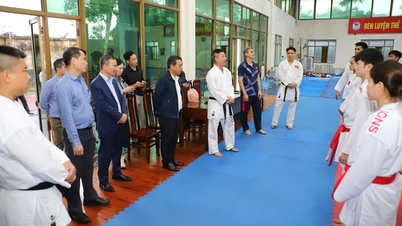



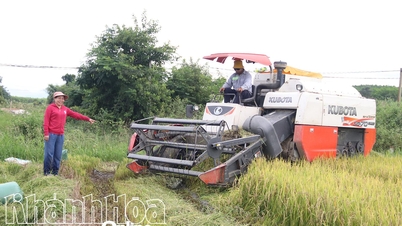



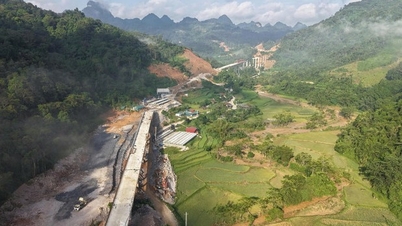
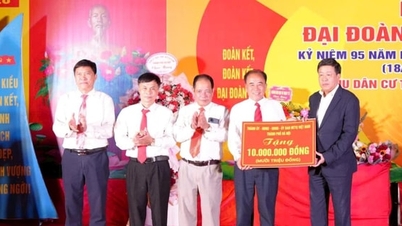

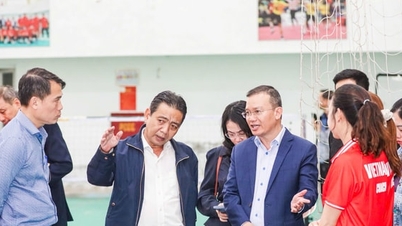






![Dong Nai OCOP transition: [Article 3] Linking tourism with OCOP product consumption](https://vphoto.vietnam.vn/thumb/402x226/vietnam/resource/IMAGE/2025/11/10/1762739199309_1324-2740-7_n-162543_981.jpeg)







Comment (0)